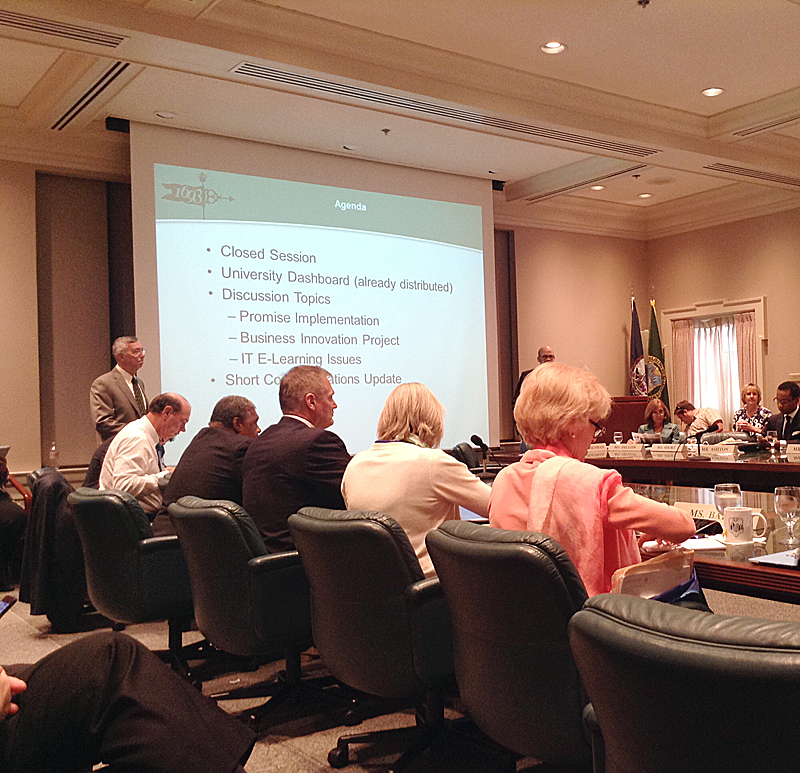Assistant Vice President for Health and Wellness Dr. Kelly Crace thinks students at the College of William and Mary are very intelligent and hardworking, but “vulnerable.”
Speaking to Board of Visitor members during the Committee for Student Affairs meeting, Crace described his study during the past 25 years of how people flourish and languish. He believes that current students are living their lives by a fear-based model of excellence.
Crace has concluded that when something becomes important to someone, that individual develops a fear of the uncertainty of things beyond their control. Additionally, he noted that students live in an era where they feel they are constantly being evaluated in terms of success. Students respond to this fear in two ways — by trying to over-control or master their situations through perfectionism, or by avoiding or escaping problems through procrastination. He says that by the time students go to college, they have become experts at both tasks in order to control their environments and escape the discomfort of fear. This is the fear-based model of excellence.
The problem with the fear-based model of excellence is that it often causes so much strain that students shift from the pursuit of excellence to the pursuit of calm. He says his work at the College has included encouraging students to work towards authentic excellence.
“The authentic model of excellence makes wellness synonymous with excellence,” Crace said.
Crace says there are three steps to get students to work toward authentic excellence. First, they have to manage their fear through an avenue other than perfectionism and procrastination. Second, they must foster an expressive mindset. Third, students have to be able to clarify their own life values, but not let those values dictate their definition of excellence.
Vice President of Student Affairs Ginger Ambler ’88, Ph.D. ’06 said she was pleased to have Crace as a new member of her team.
“He is the perfect champion for us to start thinking differently about what flourishing looks like and recognize that well-being and excellence are not mutually exclusive,” Ambler said.
She opened the Committee for Student Affairs meeting with brief remarks about the start of the academic year. Ambler noted that the residents of the fraternity houses were very proud of their new homes. The academic year began with Convocation, and despite the rain, she believes it was a wonderful and joyous experience. Ambler also stressed that One Tribe Place was an accomplishment of this academic year.
“That was a Herculean effort to get that building ready for opening,” Ambler said.
Student liaisons Erin Spencer ’14 and Brian Focarino ’11, J.D. ’15 gave a Facebook-themed presentation about how social media has changed the College. Spencer stated that, in the past 10 years, online engagement has increased tenfold.
Spencer and Focarino mentioned that alumni were previously only able to stay connected to the College through the alumni magazine, reunions and occasional Homecoming visits. They reasoned that social media has defragmented their connections to the College.
“No longer do I get my dose of William and Mary when I get my alumni magazine, but I get my dose of William and Mary every time I check my phone,” Focarino said.
The pair mentioned that freshmen now start connecting before they move in. Focarino’s brother, a freshman, met students through Facebook this year before school began, and the group held a Google hangout every Sunday before they moved in. They knew each other well by the time classes started.
“Now we have a William and Mary that we’ve never had before. It is young and old. It is near and far. It is loud and proud,” Spencer said.
The members of the BOV especially appreciated the fake College President Taylor Reveley twitter account after hearing Spencer and Focarino describe some of the tweets.
“Sounds like Fake Taylor is a little surly,” Reveley said.

